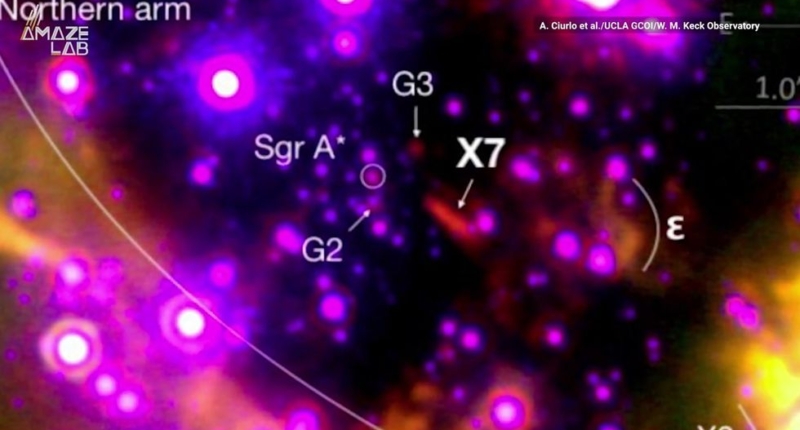A supermassive black hole in the galaxy PBC J2333.9-2343 has changed direction and is now pointing directly at Earth. The galaxy, found 657 million light-years from Earth, has been reclassified as a “blazar” – a point galaxy with jet points heading towards Earth. The jet of matter from the black hole has created two massive lobes on either side of the galaxy, which are the most noticeable objects when observed in radio waves. Scientists hypothesize that the axis angle of the galaxy changed after a collision with another galaxy. The discovery of the black hole’s new direction is alarming as it raises questions about the potential impact it could have on Earth.
A Black Hole in PBC J2333.9-2343 Galaxy is Now Pointing Directly at Earth
PBC J2333.9-2343, a galaxy found 657 million light-years from Earth, has been reclassified by scientists after they discovered that its supermassive black hole has changed direction and is now pointing directly at us.
The galaxy was previously classified as a giant radio galaxy because it sent out a jet of material on either side, which measured nearly four million light-years across. However, astronomers have now realized that the galaxy has moved 90 degrees, making it a “blazar” – a point galaxy with jet points heading towards Earth.
The jet of matter from the black hole has created two massive lobes on either side of the galaxy, which are the most immediately noticeable objects when observed in radio waves.
Scientists started studying this galaxy because it showed strange properties, and their hypothesis was that the relativistic jet of its supermassive black hole had changed direction. To confirm this idea, they had to make a lot of observations. The study, published in the Monthly Notices of the Royal Astronomical Society, goes into detail about the change.
The structures near the core of PBC J2333.9-2343 represent the young, active jets, while the lobes on either side of the galaxy are the remnants of past activity.
It is not clear how this change occurred, but one guess is that PBC J2333.9-2343 collided with another galaxy, which could explain how the axis angle changed.
This discovery is alarming as the supermassive black hole is now pointing directly at Earth, raising questions about the potential impact it could have on our planet.
Don’t miss interesting posts on Famousbio

